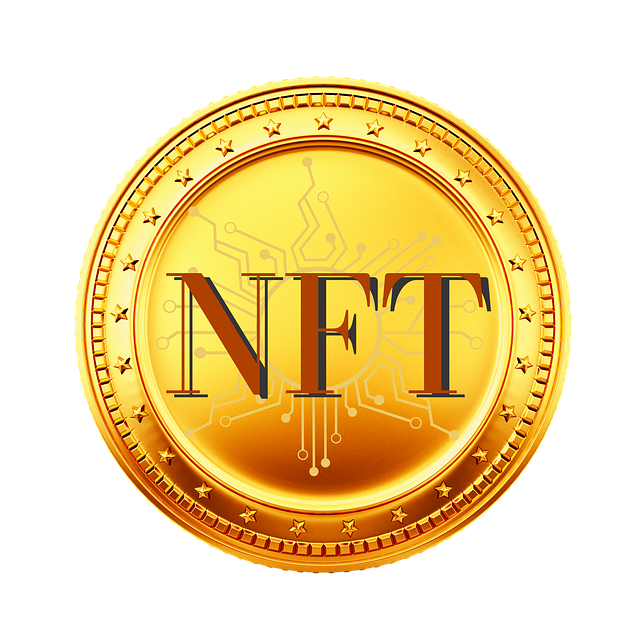Is Crypto Trading Illegal in Canada in 2025?
Author: Jameson Richman Expert
Published On: 2025-09-20
Prepared by Jameson Richman and our team of experts with over a decade of experience in cryptocurrency and digital asset analysis. Learn more about us.
Understanding the legal landscape of cryptocurrency trading in Canada as of 2025 is essential for investors, traders, financial institutions, and industry stakeholders. Over the past few years, Canada’s approach to digital assets has transitioned from initial uncertainty to a mature, well-regulated environment that seeks to balance fostering innovation with safeguarding consumers and the broader financial system. The rapid proliferation of cryptocurrencies such as Bitcoin, Ethereum, and a diverse ecosystem of altcoins has prompted Canadian regulators to develop detailed and adaptive frameworks aimed at supervising, regulating, and enabling legitimate trading activities. This comprehensive guide offers an in-depth analysis of the current legal status, regulatory environment, compliance obligations, and future outlook of crypto trading in Canada in 2025, equipping stakeholders with the insights needed to navigate this complex yet promising market effectively.

Overview of Cryptocurrency Regulations in Canada
Canada’s regulatory approach to cryptocurrencies is characterized by pragmatism, transparency, and flexibility. Rather than imposing outright bans, Canadian authorities recognize digital assets as a form of property, security, or derivative, depending on their specific features and intended use cases. This nuanced classification allows for tailored oversight, fostering technological innovation while implementing safeguards against fraud, market manipulation, and illicit activities.
The regulatory landscape involves multiple agencies working collaboratively to oversee different aspects of crypto activities:
- Canadian Securities Administrators (CSA): An umbrella organization coordinating provincial and territorial securities regulators. The CSA provides guidance on whether a particular token qualifies as a security, sets out rules for ICOs, and supervises securities-based digital assets, ensuring compliance with securities laws across jurisdictions.
- Financial Transactions and Reports Analysis Centre of Canada (FINTRAC): Canada's AML (Anti-Money Laundering) watchdog. FINTRAC requires crypto exchanges, wallet providers, and other digital asset service providers to register as Money Services Businesses (MSBs), implement AML/KYC protocols, monitor transactions, and report suspicious activities to prevent money laundering and terrorist financing.
- Provincial Securities Commissions: Local authorities like the Ontario Securities Commission (OSC), British Columbia Securities Commission (BCSC), and others, enforce licensing requirements, conduct investigations, and adapt regulations to regional market nuances, ensuring investor protection and compliance.
Canada’s emphasis on AML and KYC standards means that all licensed entities must verify customer identities, maintain detailed transaction records, and report large or suspicious transactions. The classification of digital assets varies—some tokens are securities, others are commodities, property, or utility tokens—enabling diverse use cases such as DeFi, staking, and token issuance, provided that compliance obligations are met.
The Legal Status of Crypto Trading in Canada
As of 2025, crypto trading remains explicitly legal throughout Canada. The country’s regulatory maturity means that individual trading activities—buying, selling, holding—are lawful when conducted through compliant, licensed platforms. Canadian residents and businesses can access both domestic and international exchanges that operate legally within the regulatory framework, with many such platforms establishing local operations by securing necessary licenses and adhering to Canadian laws.
Major international exchanges such as Binance (which has obtained local registration in some jurisdictions), MEXC, Bybit, and BitGet continue to operate within Canada, offering services compliant with local AML/KYC regulations. These platforms typically implement robust onboarding procedures, transaction monitoring, and customer verification processes to ensure lawful operation.
Taxation significantly influences the legal landscape. The Canada Revenue Agency (CRA) treats cryptocurrencies as taxable property, meaning any gains or income are subject to taxation. Traders are required to maintain detailed records of all crypto transactions, including purchase dates, amounts, and sale prices. Profits from trading or disposition are taxed as capital gains or business income depending on the activity’s nature. The CRA’s guidance underscores the importance of accurate reporting; failure to do so can result in penalties, audits, or legal repercussions, reinforcing the importance of compliance for lawful trading.
Key Regulatory Bodies and Their Roles in 2025
Regulatory oversight in Canada involves multiple agencies, each with specific mandates, working cohesively to regulate the evolving crypto ecosystem:
- Canadian Securities Administrators (CSA): Continues to lead efforts in classifying tokens, enforcing registration requirements, and overseeing market conduct. In 2024, the CSA reaffirmed that certain tokens are securities, necessitating registration and disclosure obligations for issuers and trading platforms. Future guidance is anticipated to address emerging asset classes like Non-Fungible Tokens (NFTs), decentralized finance (DeFi) tokens, and tokenized real-world assets.
- FINTRAC: Enforces AML/KYC regulations, requiring registration of crypto businesses, ongoing customer verification, large transaction reporting, and suspicious activity monitoring. The agency has been exploring stricter enforcement measures against unregistered entities and expanding compliance scope to encompass newer sectors like NFT marketplaces and DeFi platforms.
- Provincial Securities Regulators: These bodies tailor enforcement actions, licensing standards, and investor protections regionally. They also offer specific guidance on local compliance requirements and oversee regional crypto exchanges and service providers.
Looking toward the future, regulatory authorities are expected to introduce more comprehensive and sector-specific regulations, particularly targeting DeFi protocols, staking services, NFTs, and digital asset custody. These initiatives aim to strike a balance: fostering technological innovation while establishing robust safeguards to prevent fraud, manipulation, and illicit activities.

Tax Implications and Reporting Requirements
Tax compliance remains a cornerstone of crypto legality in Canada. The CRA considers cryptocurrencies as taxable property, leading to specific obligations:
- Capital Gains Tax: Profits from selling or exchanging cryptocurrencies are subject to capital gains tax. Accurate calculation involves determining the adjusted cost base (ACB)—the original purchase price plus associated costs—and the sale price. Maintaining detailed transaction records is essential for compliance, and taxpayers must report gains or losses annually.
- Business Income: Crypto traders engaging in frequent trading, operating as a business, or providing crypto-related services must report earnings as business income. This entails comprehensive accounting of expenses, inventory (if applicable), and revenue streams, often requiring professional tax advice.
- Special Considerations: The CRA has provided clarity on the tax treatment of hard forks, staking rewards, airdrops, and valuation methods. For example, staking rewards are considered taxable income at the time they are received, and valuation depends on fair market value at that moment.
In 2025, the CRA encourages the use of advanced accounting software and professional expertise to ensure accurate reporting. Transparency and meticulous record-keeping help mitigate audit risks and facilitate compliance, fostering a healthy and lawful crypto ecosystem.
Risks, Challenges, and Security Considerations
While crypto trading is legal and regulated, participants face inherent risks. Market volatility, hacking, scams, and regulatory uncertainties remain significant challenges. The borderless nature of cryptocurrencies amplifies these risks, emphasizing the need for diligent security measures and ongoing education.
Key security practices include:
- Engaging only with licensed, regulated exchanges employing robust security protocols such as cold storage, multi-signature wallets, and regular audits
- Implementing two-factor authentication (2FA), strong passwords, and biometric protections
- Using hardware wallets or cold storage for long-term holdings to minimize hacking vulnerabilities
- Remaining vigilant against phishing attacks, fake websites, and scam schemes prevalent in the crypto space
Furthermore, the regulatory landscape around DeFi, NFTs, staking, and decentralized exchanges continues to evolve, often operating outside traditional oversight. This creates additional exposure to unregulated platforms and potential fraud, necessitating ongoing due diligence, legal consultation, and risk management strategies to protect assets and reputation.
Future Outlook: Regulatory Trends in 2025 and Beyond
The regulatory trajectory in Canada suggests ongoing refinement and expansion to address technological advancements and market innovations:
- Enhanced Licensing and Capital Requirements: Stricter standards for crypto exchanges and service providers, including minimum operational capital, cybersecurity standards, and insurance requirements, aimed at increasing resilience and consumer protection.
- Broader AML/KYC Scope: Expansion of AML/KYC obligations to cover DeFi platforms, NFT marketplaces, staking services, and other emerging sectors, reducing illicit use and enhancing transparency.
- Refined Asset Classification: Clearer distinctions among securities, utility tokens, stablecoins, and other digital assets to streamline compliance and reduce legal ambiguity.
- Regulation of Emerging Technologies: Specific rules for DeFi protocols, NFTs, tokenized assets, and blockchain-based applications, emphasizing investor protection, anti-fraud measures, and disclosure responsibilities.
This regulatory evolution seeks to promote innovation and competitiveness while maintaining market integrity and protecting investors. Canada's proactive stance indicates a commitment to becoming a global leader in responsible and sustainable crypto regulation.

Conclusion
In 2025, cryptocurrency trading in Canada is unequivocally legal and supported by a comprehensive, transparent regulatory framework. The environment emphasizes adherence to licensing, tax compliance, AML/KYC protocols, and ongoing regulatory developments—creating a stable foundation for legitimate crypto activities. This balanced approach encourages technological innovation and economic growth while maintaining investor confidence and market integrity.
Participants are advised to stay informed through official sources such as the Canadian government’s crypto guidance, the CSA website, and industry updates. Continuous education, compliance, and professional advice are vital to capitalize on the opportunities and mitigate risks in Canada’s evolving crypto landscape.